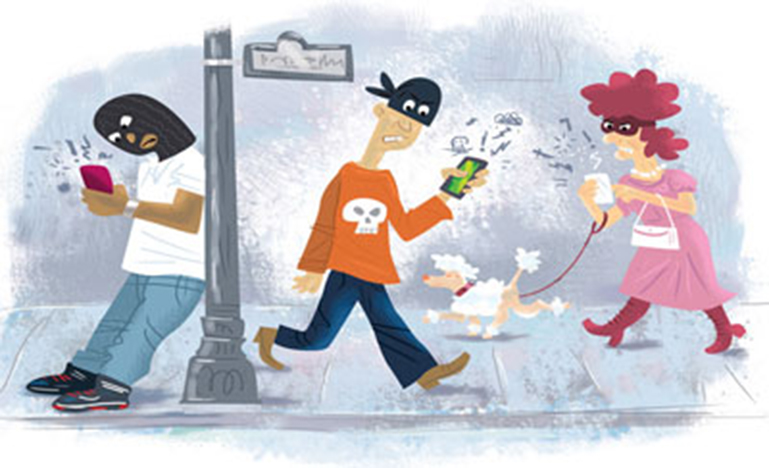Undetected
The law of anonymity on the internet.

When I walk into the room to announce something of great import, such as the serving of dinner, my adorable teenage children rarely acknowledge my presence. In fact they can’t even hear me, tethered as they are through their earphones to their hand-held devices. Eventually I catch their attention through wild gesticulation. Reluctantly, each of them responds by unplugging from one ear to hear what I have to say.
Later, at the dinner table (where electronics are banned) I tell them that at their age we didn’t download digital music online. We listened to records spun at revolutions of either 33 or 45 per minute, with a diamond needle passing over grooves to emit the sound. The music was actually broadcast to anyone in the room.
This is when my children exchange glances, acknowledging between them yet another one of my temporary mental spells.
And yet, it was only a couple of decades ago, when I was well into my working life, that this whole digital revolution started up.
There’s no question the internet has had a positive impact on information sharing and expression.
But there’s also spamming, internet gambling, the dissemination of child pornography, the promotion of terrorist activities, fraud and identity theft, harm to reputation, loss of privacy, internet vigilantism and cyber-bullying.
The internet also allows for anonymous communication, which can lead to the mischief of impersonation. Think of Notre Dame linebacker Manti Te’o (now of the San Diego Chargers) who took inspiration from personal tragedy when his spirited play, following the death of his girlfriend from leukemia, almost won him the Heisman Trophy. The only problem was the girlfriend didn’t exist. They had communicated exclusively online and had never met in person. She turned out to be guy who was supposedly playing a hoax on the unsuspecting Te’o.
Of course the intent behind securing an ersatz digital partner is to alleviate the pressure that friends and family exert on single guys. The subscriber can produce emails, Facebook postings and even voicemails to vouch for her existence. Having her over for Thanksgiving dinner with the family is a bit trickier.
Anonymity has its time and place, I suppose. But where's the accountability? Well, the courts seem to be doing what they can.
Former Toronto Maple Leafs GM Brian Burke found himself the subject of scurrilous online rumours about fathering offspring outside of marriage. In the ensuing defamation action, the B.C. Supreme Court in May allowed the plaintiff to serve 18 anonymous defendants, through their online message boards. Some were identified in the pleadings by internet handles such NoFixedAddress, Lavy16 and Slobberface.
In an Ontario Superior Court of Justice decision this year, Manson v. Doe, Goldstein J. awarded general, aggravated and punitive damages and full indemnity costs against an anonymous blogger, to be enforced when the identity of the blogger surfaces. Said the court, “There are few things more cowardly and insidious than an anonymous blogger who posts spiteful and defamatory comments about a reputable member of the public and then hides behind the electronic curtain provided by the Internet.”
For a time I was skeptical that legal principles dating back to the time of the Magna Carta could be applied to define the limits of expression circulating in cyberspace. The internet with its ubiquity, spontaneity and instantaneous nature presents unmistakable challenges for free expression. And though still largely regarded as a wild and unregulated frontier in which just about anything goes, the time has come to consider more carefully how our digital age would benefit from meaningful responses from the law.
These are challenges that I expect will be met by both programmers writing code or by courts writing law.


